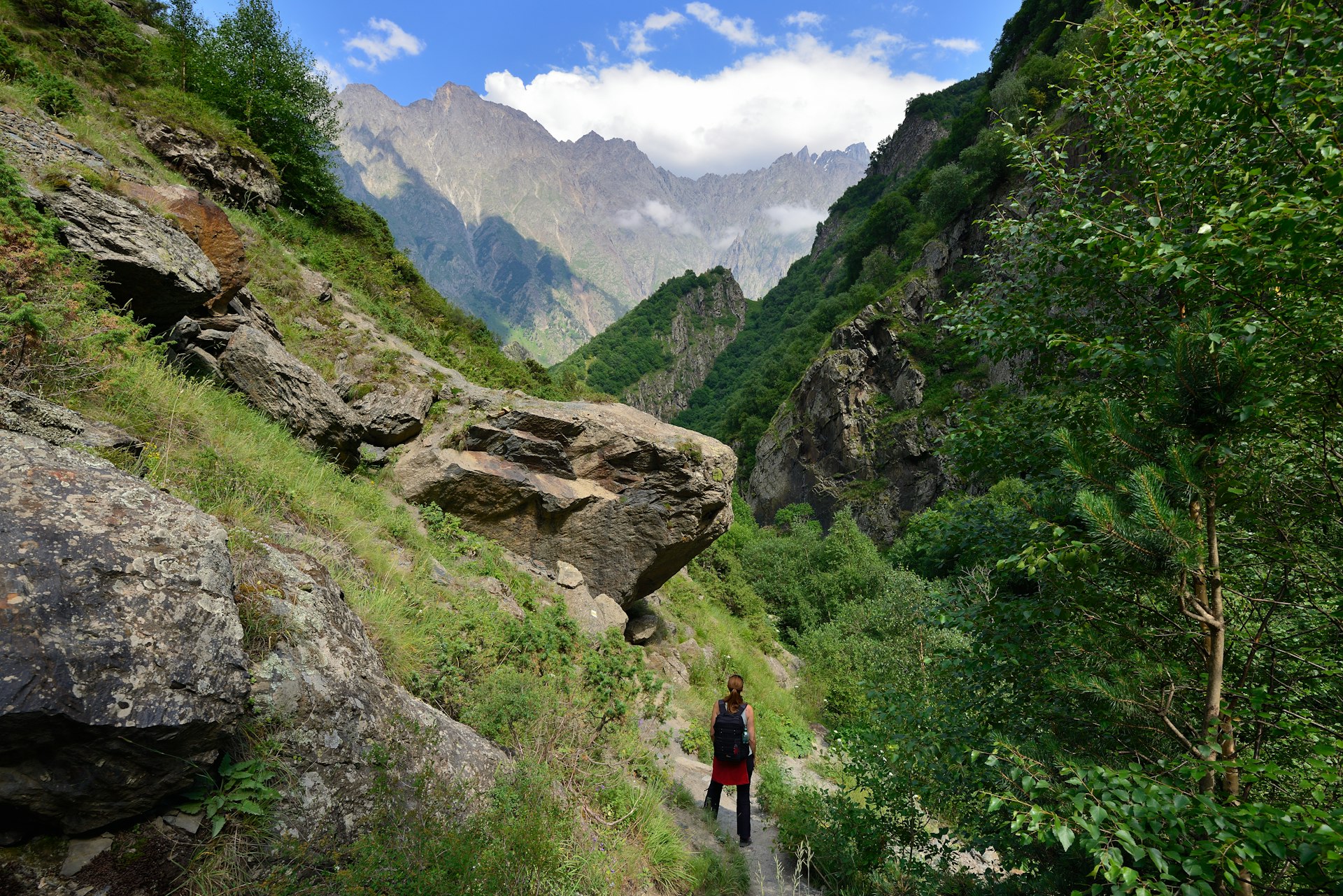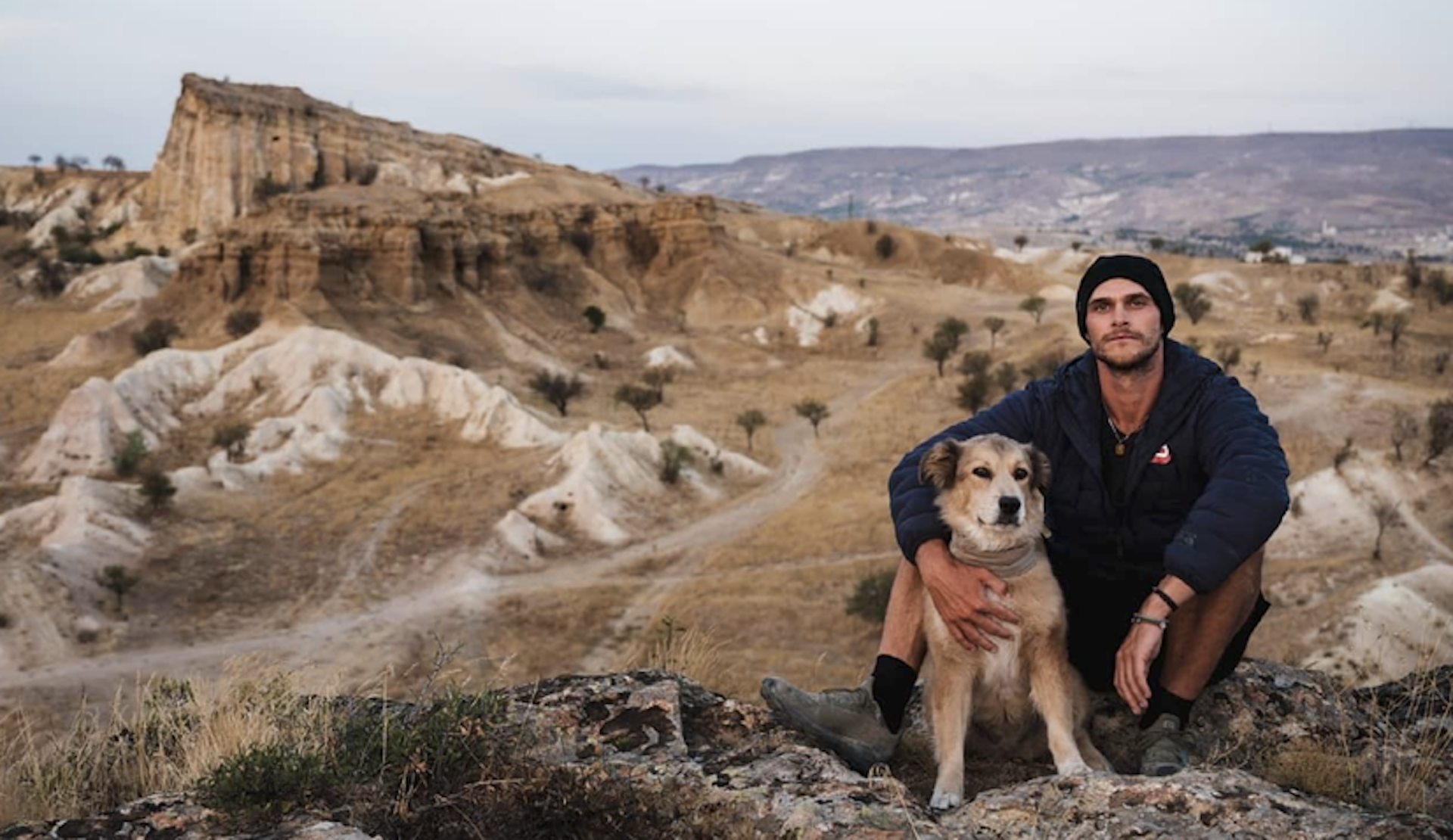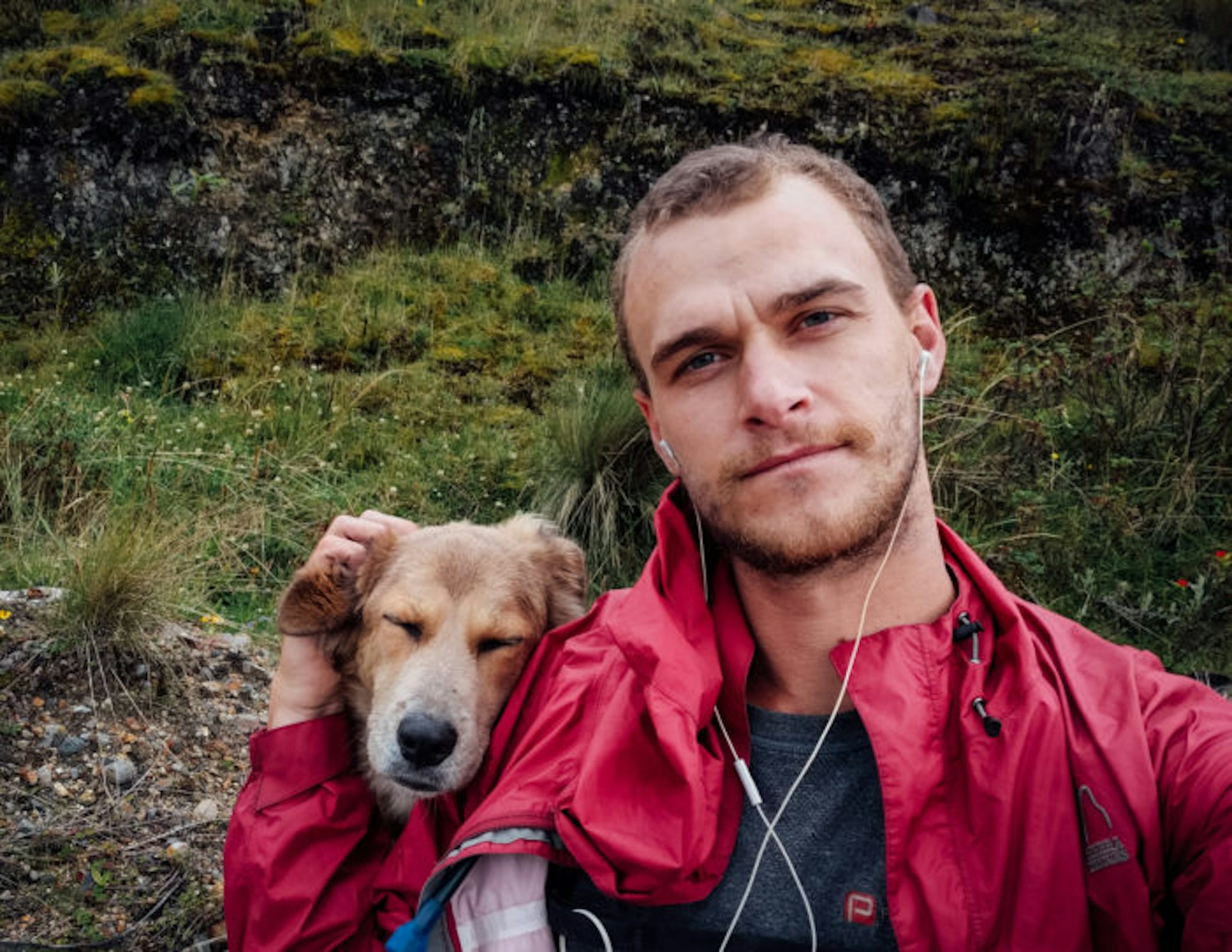Inspired to live life more fully following the death of a friend, New Jersey native Tom Turcich, set himself a goal to see and experience the world on foot.
After finishing college and saving enough money, Turcich, with his dog Savannah by his side, embarked on a seven-year trip, visiting 38 countries. Now living in Kentucky, he shared with Lonely Planet’s Sara Stewart his philosophy of travel and lessons learned on the road.
Every experience is part of the adventure
I wanted to be forced into adventure, because I was timid and introverted. And I wanted a slow way of traveling. It came down to knowing what I wanted out of this very limited time I have here. If your goal is to discover the world, you’re willing to do that – even if you never get a hotel room, even if you’re eating peanut butter and jelly every day. That’s part of the adventure.
I knew that by walking that I couldn’t skip over anywhere. If I had been on a bike, if someone told me, “Hey, the town up ahead is dangerous,” I could fly through it. And I didn’t want that option. I wanted to see how the world actually was.
Everywhere you go, it’s just people living. You have this image in your head of what a place is like – and then when you get there you go, Oh, this is just like anywhere else, except the food changes. The world is made up of people trying to make a living, hanging out with their friends. People warned me about some places like El Salvador and Honduras – and those are, objectively, more dangerous places than other parts of the world. But when you think about any neighborhood, there’s kids going to school, there’s people walking to work. You’re just a stranger walking through a place where other people walk as well.
In Colombia, in particular, the older generation was scarred from La Violencia, that 50-year period of political violence. And so every town I would get to, people would tell me, “Be careful about the next town, it’s dangerous!” And when I would get to the next town, it was like, “Be careful about the next town!” But if you talked to the younger generation, they didn’t have any of that. It was only the older generation who rememberd.
Where to go in every town in every country
When I would get to a town, I would head to the square. Literally every other country does this except for the USA. It’s a place in your town that you wander over to because you have nothing else going on. It’s a good way to seek out culture and life, especially at midday and after sundown. The value of it, really, is happiness and community and sharing ideas and having a place to let kids ride circles around on their bikes, and for teenagers to hang out and have strange conversations.
In Argentina, when it was particularly hot, I needed a place to sit in the shade for a few hours. So I stop in a square, and I find this tree to lie under for a bit. I wander over to a restaurant, and this guy comes over and asks, “Hey, you want to come over and have lunch with my family?” I get invited inside, and we have this great time and share coffee together, and they make spaghetti and meatballs.
Why slow travel is the only way to travel
I now have a real appreciation for the benefits of inefficiency. Our obsession with efficiency is so stupid. You think you’re getting somewhere quicker, and then you come back and sit on your ass. You sit on the sofa and go, Whoa, I got to the supermarket really fast. And burned a bunch of gasoline on the way there. If you travel slowly, you realize how enjoyable it is to exist out in the world. It’s the same benefit of the public square: you’re in the world, you’re bumping into it, you’re having chance encounters, the wind feels nice, the birds are singing. You’re going to have time in your day that you can burn. You are not a perfect efficiency machine. Spain’s very relaxed in that way. I think it comes in cultures that are older. North Africa was similar, especially Morocco and Algeria. Turkey is pretty mellow as well.

[The Republic of] Georgia is amazing. So vibrant and free. It’s a young democracy, but it has a really rich culture. You can just feel the want for democracy, the ideas – especially when compared to the neighboring Azerbaijan dictatorship. They have great art, great food, the conversations are great. The architecture is beautiful.
Preparing for a trip walking the world
Before starting, I walked two days up to my college, for practice, and that was like 60 miles. A lot of blisters! If you want to try out a two-day trip, camp in some strange patch of woods, it makes for more of an adventure. Maybe try a search on Google Maps, find a place that’s 20 miles from you. You probably need two liters of water a day. The USA has a lot of roads. You can find back roads that are quiet, especially in the middle of the country. Ohio, the Great Plains. If you’re doing two days, you can just take a backpack. I don’t think I would wear hiking boots. Your ankles get stronger when you don’t have that support, and you’re a little more nimble. Definitely wear wool socks.

America is territorial in a way that is rare in the world. A lot of land is fenced off, and people have their guns and are protective. So you want to be mindful of that. You don’t want to be a fool. But people are very nice everywhere. I think walking across the US is a great way to see the country, and get a sense of just how big and beautiful it is. When I was out West, it just blew my mind.
